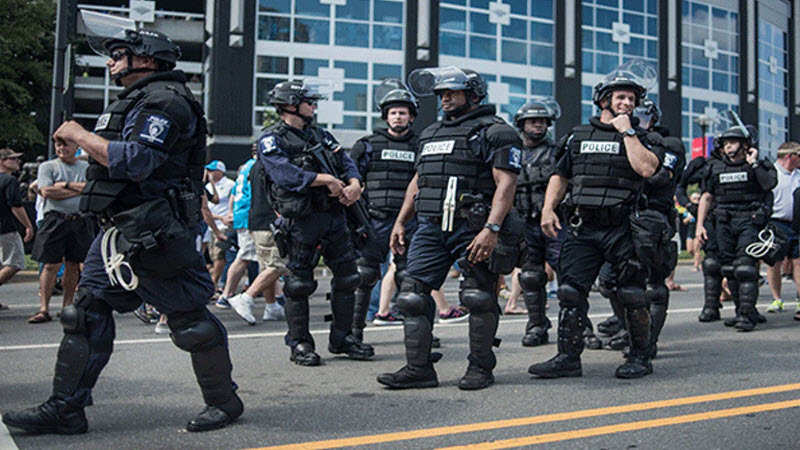

In the wake of high profile officer-involved killings and the perceived cozy relationship between prosecutors and police unions, four of the leading reformers in California—Diana Becton, Contra Costa DA, Chesa Boudin, San Francisco DA, Tori Verber Salazar, San Joaquin County DA, and George Gascón the former SF DA who is running in Los Angeles—are pushing the California State Bar to change ethics rules that would reduce the conflict of interests for prosecutors.
On Tuesday, there was another public hearing in front of the State Bar.
San Francisco DA Chesa Boudin testified in front of the board members.
He noted that law enforcement unions continue to play a major role in local, state, and even national politics and frequently support or donate to candidates.
“Since 2000, for example, law enforcement unions have spent nearly $65 million in LA elections, over $19 million in NYC elections and $3.5 million in Chicago elections,” Boudin said.
“Prosecutors, like judges, are charged with public duties that transcend those of ordinary advocates. It is of paramount importance that the public trusts prosecutors to carry out those duties fairly and impartially,” he continued.
“Our proposal calls on the California Bar to hold prosecutors accountable to the high ethical standards it promotes and prevent prosecutors from taking money or support from law enforcement  unions,” Boudin testified.
unions,” Boudin testified.
In a June 1 letter to the State Bar, the four prosecutors requested a change to the ethics rule.
“Prosecutors are in a unique position of having to work closely with law enforcement officers and evaluate whether some of those same officers have committed crimes,” they write. “When prosecutors initiate an investigation or prosecution of an officer, law enforcement unions often finance their members’ legal representation.”
They argue: “Receiving an endorsement and campaign contributions from an entity that finances opposing counsel creates, at a minimum, the appearance of conflict of interest of interest for elected prosecutors.”
They add, “District Attorneys will undoubtedly review use of force incidents involving their members. When they do, the financial and political support of these unions should not be allowed to influence that decision making.”
There were a number of concerns raised about the potential for the violation of First Amendment Rights as well as the effectiveness of Rule 1.7 in the State Bar Rules of Professional Conduct which prohibits a lawyer from representing a client that they have a legal, business, financial, professional, or personal relationship with.
One point was made that, despite receiving donations from police unions, prosecutors are to uphold professional conduct.
The State Bar has yet to form a new professional conduct rule that will prevent prosecutors from accepting donations from police unions.
On July 2, Interim Executive Director Donna Hershkowitz responded to the letter sent by the prosecutors stating that “adopting a Rule of Professional Conduct that precludes elected prosecutors, or those seeking such office, from accepting any contribution from a law enforcement union could be said to conflict with AB 571, which permits such contributions, limiting only their amount.”
For his part, Chesa Boudin acknowledged there were First Amendment concerns with their proposal but believed those could be overcome.
He told the committee, “Our rule would survive First Amendment scrutiny, as it is narrowly tailored to further the state’s compelling interest in maintaining public confidence in the integrity of prosecutors.”
He noted the 2015 U.S. Supreme Court case of Williams-Yulee v. Florida Bar, where the court upheld a Florida state ethical ban on personal campaign solicitations by judicial candidates. Here he said the Court applied strict scrutiny and found that the law was narrowly tailored to address a compelling state interest in ensuring the public trust in the judiciary.
At the same time, he argued “recent events can only reinforce that compelling state interest in building public trust in the impartiality of prosecutors—who, like judges, are entrusted to be fair and have integrity.”
Boudin added, “It is our view that both candidate and candidate committees should also be restricted but independent expenditures would not be restricted by committees but committees should be barred from soliciting political support or funding from law enforcement unions.”
—David M. Greenwald reporting
To sign up for our new newsletter – Everyday Injustice – https://tinyurl.com/yyultcf9


A cleaner, simpler solution would be to abolish all public employee unions in California.
That would seem to be sarcasm – there is no way that the process of doing that would be either clean or simple.